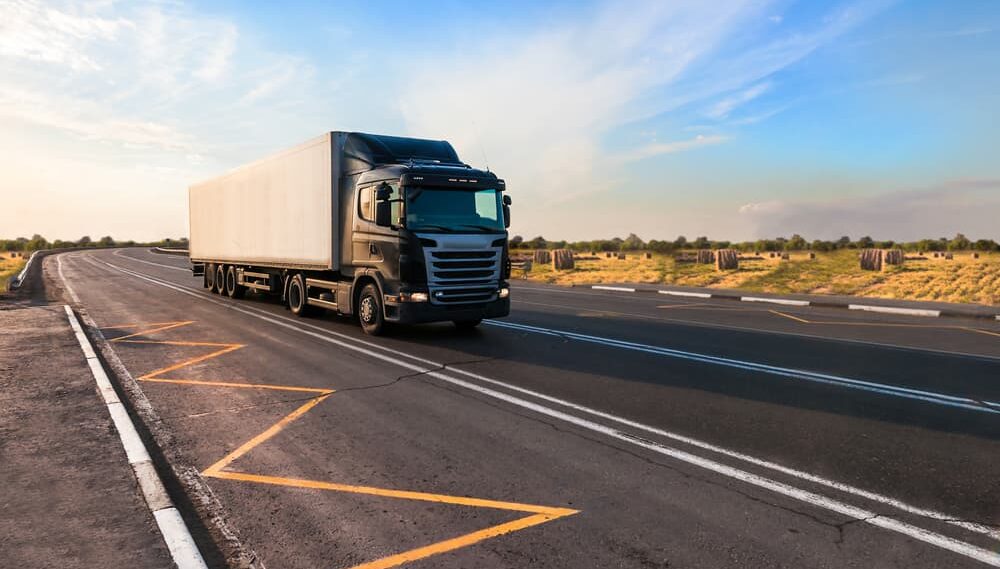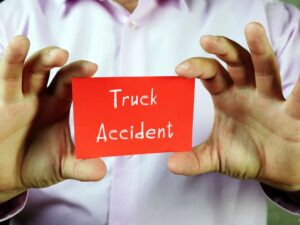
The aftermath of a truck accident can be disorienting and overwhelming. Victims of these accidents often look for answers about what happened. In these critical moments, one piece of technology can be the key to understanding how the accident occurred and who can be held liable: the “black box.”
Officially known as an electronic control module (ECM) or event data recorder (EDR), black boxes in trucks are similar to the devices found in aircraft that record and store vital data about the performance and condition of an aircraft in flight.
Understanding the technicalities of the retrieval, access to, and use of black box data is important for accident victims moving forward through their claims or litigation process. You will need help accessing black box data, so always contact a truck accident lawyer.
What Is Black Box Data?
Black box data in trucks encompasses a variety of information collected by the truckэs event data recorder (EDR) or electronic control module (ECM). This sophisticated piece of technology records multiple data points that can be crucial for post-accident analysis. The data recorded by black boxes is related to the operational performance of the truck, such as its speed, acceleration, brake times, and others (see a more comprehensive list of data points in the section below). All the data recorded can help reconstruct the events leading to the crash.
Since 2017, most commercial trucks and even buses must be equipped with black boxes. However, there are many exceptions as to who must have EDRs, which is why we do not expect all large trucks to have black box data.
Black box data serves as an integral element of modern trucking operations. The purposes of this data range from enhancing safety standards and fulfilling legal requirements to affirming regulatory compliance and determining liability post-accident. The objective nature of a truck’s black box data provides a deeper understanding of the events on the road, paving the way for improving trucking practices and holding negligent parties (trucking companies, truckers, manufacturers, or others) responsible in the event of collisions.
Industry standards and regulations – such as those provided by the Federal Motor Carrier Safety Administration (FMCSA) – govern access to and the use of black box data. Compliance with these regulations ensures that all parties accessing the data maintain its integrity and confidentiality.
Types of Data Recorded by Black Boxes

The detailed data captured by black boxes in trucks provides a plethora of valuable information that is vital for investigators, insurance companies, and lawyers. The types of data that black boxes are capable of recording include:
- Vehicle speed and acceleration. Black boxes track and record the speed at which the truck is traveling and how it changes over time. This data can indicate whether the truck was accelerating or decelerating before the accident, which can be instrumental in determining the cause of the crash.
- Engine performance. EDRs monitor various parameters associated with engine performance, such as throttle position, fuel use, and engine speed. These metrics can reveal whether any mechanical issues were contributing to the accident.
- Brake usage. Information on brake usage, including when and how hard the brakes were applied, is crucial. It can help investigators determine whether the driver attempted to avoid the accident and if the braking system was functioning correctly.
- GPS location. The GPS location data helps to pinpoint the exact location of the accident. It can be used to validate the route taken by the truck and analyze any environmental factors that may have played a role in the incident.
- Route history. Black boxes often store information about the routes taken by the truck before the accident. This data can provide context about the driver’s actions and decision-making shortly before the collision occurred.
- Airbag deployment. The EDR records airbag deployment, which can be a clear indicator of the severity of the accident. This data can also provide insights into the point of impact, which is critical in accident reconstruction.
- Driving time and rest periods. In compliance with regulations aimed at preventing driver fatigue, black boxes record driving time and rest periods. These logs are essential for determining whether the truck driver was operating within legal limits and if fatigue might have been a factor in causing the accident.
- Steering angle and input. Data about steering angle and input can say a lot when attempting to reconstruct a crash. This information can reveal the driver’s efforts to maneuver the truck before impact and can provide evidence of driver error.
All of these pieces of information, particularly when combined, can provide essential data about what was happening before, during, and after the collision. However, accessing black box data in a truck may not be easy, especially when victims are not represented by a knowledgeable truck accident lawyer.
Who Has Access and Control Over a Truck’s Black Box?
Technically, the truck operator has immediate physical access to the black box. This often means that the trucking company managing the vehicle will retain the ability to access the data. However, due to legal and privacy considerations, they do not always have free rein to use this data as they please.
Although the trucking company can physically access black box data, the contents may be subject to different ownership and control rights that vary by jurisdiction. Most of the time, the data is considered to be owned by the trucking company, but accessing and using this data is heavily regulated.
“What’s all the deal with the limited access to black box data?” you might be wondering. Well, the data within a truck’s black box is safeguarded to protect the privacy of all parties involved. Given the sensitive nature of the information stored in black boxes, not everyone can request access to this information. Typically, law enforcement or legal representatives can request the data through appropriate legal channels, such as court orders or during the discovery phase of litigation.
How to Obtain Black Box Data After a Truck Accident?
Before attempting to retrieve the black box data following a truck accident, you must consider the following:
- Ensure that all your actions comply with federal and state laws regarding commercial vehicle data retrieval;
- Authorization is important – typically through a subpoena or court order – to access black box data;
- Respect privacy laws and data protection regulations to safeguard the rights of those involved and avoid legal repercussions in the future;
- Be wary of the statute of limitations to use the data as evidence within legal timeframes (in California, for example, the statute of limitations to initiate legal action is two years from the date of injury or death); and
- Consider working with a truck accident attorney who is well-versed in local and federal regulations regarding the retrieval of black box data.
Retrieving the black box data involves a series of technical steps:
- Step 1. Determine the truck’s make and model to locate the type of black box and determine its placement.
- Step 2. Gather the correct tools and software needed for data extraction that are compatible with the specific black box.
- Step 3. Access the black box inside the vehicle. This step may require disassembly or special equipment to reach the device.
- Step 4. Connect to the black box using the proper tools following manufacturer guidelines and begin the data extraction process.
- Step 5. Secure the data post-extraction to maintain its integrity.
- Step 6. Consider contacting forensic data experts for data interpretation to understand the recorded information fully and accurately.
- Step 7. Store the data according to privacy standards and allow access only to those with authorization. This step may require legal counsel.
- Step 8. Maintain a log detailing the retrieval process for transparency and adherence to legal requirements.
As you might have noticed, many of these steps are rather technical. In most cases, extracting data from the black box is not something an accident victim or their lawyer will do personally. Instead, truck accident lawyers will usually hire an expert to assist them with the retrieval of black box data.
The Importance of Black Box Data After a Truck Accident
The black box is basically an impartial “witness” to the events leading up to a collision as it records various parameters that can be used later on to reconstruct how the accident occurred. Each year, truck accidents contribute to more than 150,000 injuries and 5,000 fatalities on U.S. roads. Unfortunately, determining how many of these accidents occur and who should be held accountable can be challenging when no black box data is available.
Accident reconstruction experts will analyze black box data, when available, to create a clear picture of the accident’s dynamics. By doing so, it becomes more straightforward to identify the cause and who or what is responsible. Whether it is harsh braking that indicates a driver’s delayed reaction or engine issues pointing to inadequate maintenance, the information can serve as compelling evidence in insurance or court proceedings.
Without the information from a black box, conclusions about truck accidents can often be speculative. Eyewitness accounts can be unreliable, while physical evidence can be inconclusive or compromised by weather and other factors. In the absence of black box data, the truth might remain obscured and is likely to cause unnecessary complications in the legal case.
Why You Need a Truck Accident Attorney When Obtaining Black Box Data After a Truck Accident

Now that you understand what black box data is, how to get access to this data, and how the information contained in the truck’s event data recorder can help you in your truck accident case, you may be wondering, “Can I do everything on my own or do I need a lawyer to assist me?” To know whether or not you need legal representation at this stage, you need to understand the role of a lawyer in all this:
- The trucking company won’t hand over black box data willingly. Trucking companies are often reluctant to release black box data that may incriminate their drivers or reveal violations of FMCSA regulations. A skilled lawyer is aware of the stalling tactics trucking companies may use and knows the appropriate legal measures to get access to the data before it gets wiped out or tampered with. Without legal pressure, the chance of accessing this data substantially diminishes.
- A truck accident attorney can preserve the black box. Following a truck accident, you must preserve all the evidence related to your crash, and the black box is no exception. As time goes by, trucking companies may attempt to erase or overwrite black box data as part of their regular course of business. A lawyer can swiftly take action by sending a spoliation letter to ensure the trucking company retains the black box data to safeguard this essential piece of evidence.
- Navigating complex legal procedures. The process of obtaining EDR data involves intricate legal procedures that can easily confuse victims of truck crashes. A lawyer will manage this process on your behalf, from filing the necessary documents to understanding the nuances of the trucking industry.
- Expert interpretation of data. Once accessed and obtained, the black box data must be interpreted to have any value to your claim. Attorneys typically collaborate with accident reconstruction experts who can decipher the data within the context of your accident. This expert analysis can provide compelling proof to support your case and may influence the outcome of your insurance claim or lawsuit.
- Legal advocacy in your corner. Having a lawyer in your corner levels the playing field against trucking companies. You need to understand that trucking companies – often worth millions of dollars –have significant financial and legal resources at their disposal. Your lawyer will represent your best interests when dealing with trucking companies and advocate for the compensation you deserve.

Mickey Fine, Bakersfield Truck Accident Lawyer
The black box data can be one of the most important pieces of evidence that validate your version of events and prove the other party’s liability. That is why it is crucial to ensure that accessing and analyzing this data is done correctly, preferably under the guidance of a personal injury attorney in Bakersfield.
